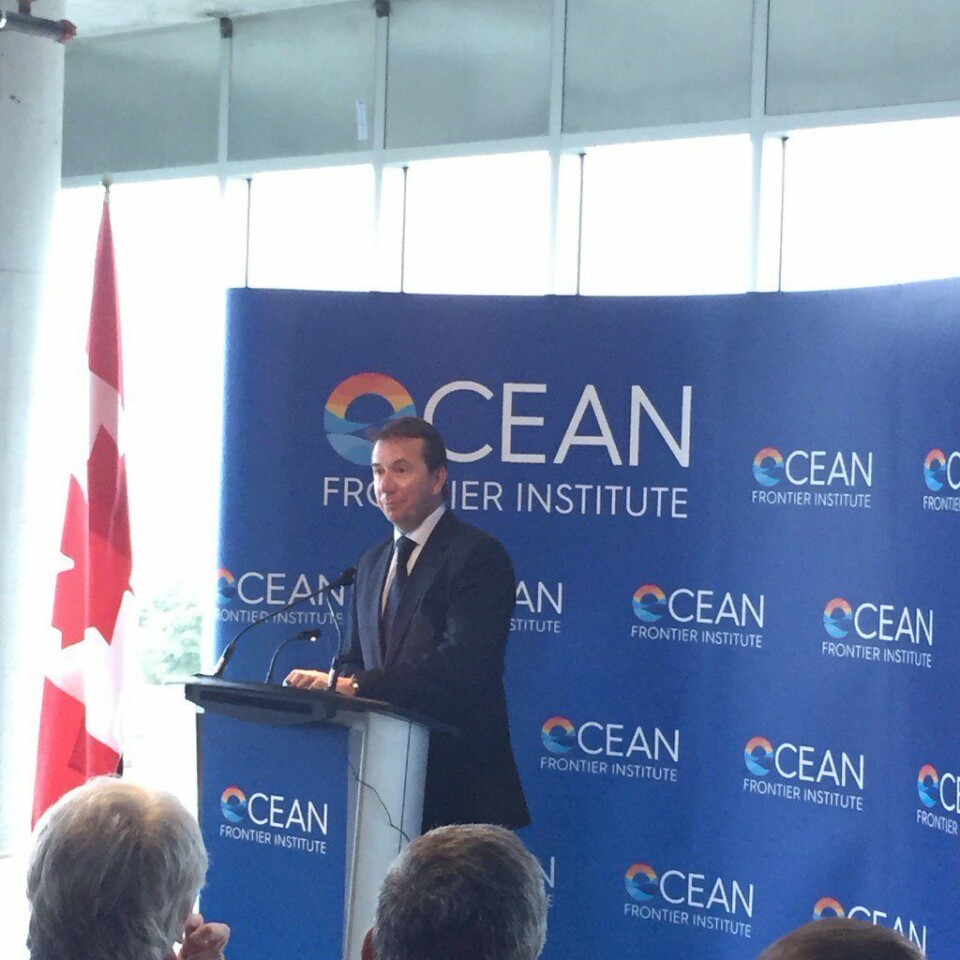
Record funding for ocean institute
A funding package worth over $200 million has been allocated to establish a new research station, the Ocean Frontier Institute (OFI) - based at Dalhousie Univeristy, in Nova Scotia - an investment that will, amongst other factors, allow researchers at UPEI to develop vaccines for farmed salmon.
The funding, announced this week by the Canadian federal government, will be distributed over seven years and the project will involve not only Dalhousie Univeristy, but also Memorial University of Newfoundland and the University of Prince Edward Island (UPEI).
The President of the Treasury Board, Scott Brison, made the announcement of the largest grant in the history of the three partner universities through the Canada First Research Excellence Fund (CFREF).
“Today’s investment ensures Canadian institutions, experts and researchers are able to compete and excel globally. The projects funded by the Canada First Research Excellence Fund, including the Safe and Sustainable Development of the Ocean Frontier, will transform the post-secondary research conducted on several of our Atlantic campuses and pave the way for exciting new discoveries,” said Brison.
‘Unprecedented’ ocean research program
The funding package includes $94 million from the the federal government, $125 million in support from provincial governments and partners and a $25 million donation from a prominent business leader in Nova Scotia, John Risley.
“I am simply thrilled to be a part of this initiative,” said Risley in a media release.
“I have every confidence the OFI can become an engine for regional economic growth and firmly establish us as global leaders in ocean science,” he added.
The institute will focus on researching ocean and ecosystem change, such as acidification, and on developing innovations related to sustainable fisheries and aquaculture.
Improving fish health
As a key component of the collaboration, the focus at UPEI will be fish health - $2.5 million will be invested at the Atlantic Veterinary College (AVC) to support scientific research aimed at preventing and treating illness in salmon.
Dr Mark Fast, an Associate Professor in the Pathology and Microbiology Department at the AVC, leads a team of researchers that study host-pathogen interactions, drug resistance and fish immunology.
Fast noted that understanding how fish respond to pathogens and vaccines is critically important for the sustainability of the industry. This type of grant will allow his group to use pricey state-of-the-art techniques such as RNA sequencing (RNAseq) to obtain a more complete picture of the fish response, and will ultimately aid in developing sustainable treatments for common aquatic pathogens.
One aspect of this new research program will enable AVC researchers, including Dr Fast, to characterize and develop fish vaccines.
Other parts of the program at the AVC will focus on tracking the effectiveness of antibiotics in the industry, as well as developing sophisticated models to help salmon producers and regulators track potential illness outbreaks.
“This research comes at a critical time for our planet and its oceans. We’re proud that UPEI and the Atlantic Veterinary College can bring our unique expertise in aquaculture and marine disease control and prevention to this unprecedented partnership. Together, we can help ensure healthy fish in a healthy environment, and nurture a sustainable source of quality protein for future generations,” stated Dr Alaa Abd-El-Aziz, President of UPEI.




















































